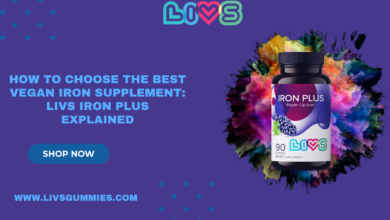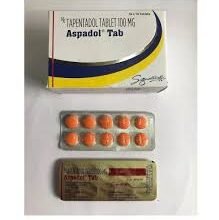Polycystic Ovary Syndrome (PCOS) is a common condition that affects many women, often leading to a variety of symptoms such as irregular periods, infertility, and, for some, excess testosterone. When testosterone levels are higher than normal in women, it can result in unwanted symptoms like acne, excessive hair growth, and even thinning hair.
It’s a frustrating experience for many, but the good news is that there are potential solutions to help manage these symptoms. Among these, supplements to lower testosterone in PCOS have become an increasingly popular option. Let’s explore how they work, which ones might help, and what women should know when looking for natural support.
Understanding the Link Between PCOS and High Testosterone
PCOS affects hormone levels in ways that can disrupt the balance of estrogen, progesterone, and testosterone. Normally, testosterone is found in much smaller amounts in women than in men, but for those with PCOS, this hormone can become elevated. When testosterone levels rise, women may notice issues such as acne, irregular hair growth (especially on the face or chest), and even scalp thinning. This imbalance can also interfere with ovulation, making it harder for women with PCOS to conceive.
Can Supplements Really Help?
So, can supplements actually lower testosterone in women with PCOS? The short answer is yes. Supplements to lower testosterone in PCOS might help manage symptoms by addressing the underlying hormonal imbalance. By working to reduce excessive testosterone, these supplements can make a noticeable difference in how a woman feels and looks. However, it’s important to note that supplements should be seen as part of an overall strategy for managing PCOS symptoms, alongside lifestyle changes like diet, exercise, and, in some cases, medication.
Key Supplements That May Help Lower Testosterone
There are several supplements that may help reduce testosterone levels in women with PCOS. Let’s take a closer look at some of the more commonly discussed options.
- Inositol: A Powerful Ally
Inositol, particularly the forms known as myo-inositol and D-chiro-inositol, has gained attention for its ability to help regulate insulin levels and improve hormonal balance in women with PCOS. Research suggests that it may help lower testosterone levels, reduce acne, and even improve ovarian function. It’s often used to help manage insulin resistance, which is a common issue for women with PCOS. When insulin levels are balanced, testosterone levels are more likely to stabilize as well.
- Spearmint Tea: A Natural Remedy
One of the more natural options available to help reduce testosterone levels is spearmint tea. Studies have shown that drinking spearmint tea twice a day can have a positive effect on reducing testosterone in women with PCOS. Spearmint has mild anti-androgenic properties, which means it can help reduce the effects of excessive testosterone in the body. If you’re looking for a simple, daily ritual to add to your routine, sipping on a cup of spearmint tea might just be a refreshing and effective approach.
- Zinc: Not Just for Immune Health
Zinc is another supplement that might be beneficial for women with PCOS. This mineral is important for hormone regulation and has been shown to help reduce acne, a common issue for those with high testosterone levels. Zinc may also help lower testosterone production and improve insulin sensitivity. Including a zinc supplement or adding more zinc-rich foods like nuts, seeds, and legumes can be a great way to help manage PCOS symptoms.
- Vitamin D: The Sunshine Vitamin
Vitamin D plays an essential role in many bodily functions, and research has linked it to improved hormonal balance. Low levels of vitamin D are common in women with PCOS, and supplementing with this vitamin has shown promise in helping to lower testosterone levels. Vitamin D may also support overall reproductive health, making it a key supplement for women with PCOS.
- Magnesium: A Stress-Busting Hormone Balancer
Magnesium is crucial for overall health and well-being, but it also plays a significant role in hormone regulation. Women with PCOS often experience higher levels of stress, which can exacerbate hormonal imbalances, including elevated testosterone. By supporting stress management and balancing hormones, magnesium might help improve testosterone levels over time. It’s often recommended to incorporate magnesium-rich foods like leafy greens, nuts, and seeds into the diet, or to take a magnesium supplement.
- Saw Palmetto: A Testosterone Blocker
Saw palmetto is another supplement that may help lower testosterone in PCOS. It’s known for its ability to block the effects of DHT, a potent form of testosterone that contributes to symptoms like hair thinning and excess facial hair growth. Saw palmetto works by inhibiting the enzyme 5-alpha reductase, which converts testosterone into DHT. As a result, it may help reduce some of the physical manifestations of elevated testosterone in women with PCOS.
How to Choose the Right Supplement for You?
With so many supplements available to help lower testosterone in PCOS, choosing the right one can feel overwhelming. While each supplement has its own unique benefits, it’s important to consider what your body specifically needs. For instance, if acne is your main concern, zinc and spearmint tea might be the best options for you. If you’re dealing with irregular periods and insulin resistance, inositol and vitamin D may be more helpful.
It’s also essential to keep in mind that supplements should not replace medical treatment, especially if you’re dealing with more severe PCOS symptoms or fertility concerns. Consulting with a healthcare provider, like Dr. Samina Mitha, a respected naturopathic doctor with a strong focus on women’s health and PCOS, can help ensure that you’re making the right choices for your specific needs.
Lifestyle Factors That Can Help Lower Testosterone in PCOS
While supplements can help manage testosterone levels, they are most effective when combined with other lifestyle changes. Eating a balanced, anti-inflammatory diet, exercising regularly, and managing stress can all play a role in hormone balance. For women with PCOS, focusing on whole foods, healthy fats, and lean proteins, while avoiding processed foods and excessive sugar, can help reduce insulin resistance and lower testosterone production.
The Importance of Consulting a Healthcare Professional
Before starting any supplement regimen, it’s crucial to speak with a healthcare provider. Supplements to lower testosterone in PCOS can be very effective, but they must be used as part of a comprehensive approach to managing the condition. Dr. Samina Mitha is a naturopathic doctor who advocates for a holistic approach to women’s health, especially when it comes to conditions like PCOS. Her guidance can be invaluable in helping you create a personalized plan that works for your unique needs.
Conclusion
Managing PCOS and its symptoms, particularly high testosterone levels, can be challenging, but it is possible to take control of your health. Supplements to lower testosterone in PCOS may offer a natural way to reduce symptoms like acne and excess hair growth, but they should be seen as part of a larger strategy that includes diet, exercise, and stress management.
Consulting with a professional like Dr. Samina Mitha ensures that you receive the best possible advice tailored to your individual needs. By incorporating these supplements and lifestyle changes, women with PCOS can take important steps toward balancing their hormones and improving their quality of life.



